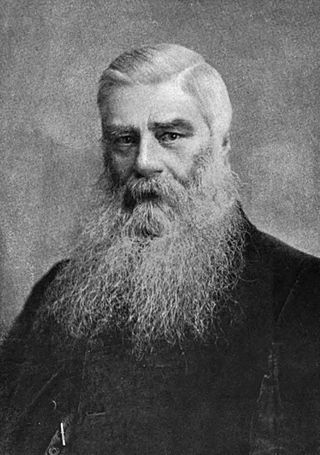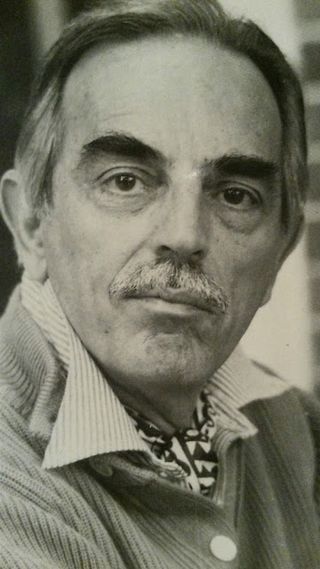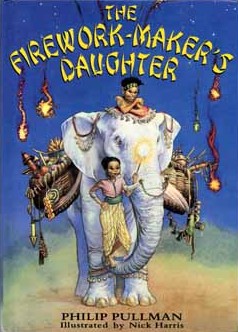Related Research Articles

Akinwande Oluwole Babatunde "Wole" Soyinka is a Nigerian playwright, novelist, poet, and essayist in the English language. He was awarded the 1986 Nobel Prize in Literature for his "wide cultural perspective and... poetic overtones fashioning the drama of existence", the first sub-Saharan African to win the Prize in literature.

David Henry Hwang is an American playwright, librettist, screenwriter, and theater professor at Columbia University in New York City. He has won three Obie Awards for his plays FOB, Golden Child, and Yellow Face. He has one Tony Award and two other nominations. Three of his works have been finalists for the Pulitzer Prize for Drama.

George Alfred Henty was an English novelist and war correspondent. He is best known for his works of adventure fiction and historical fiction, including The Dragon & The Raven (1886), For The Temple (1888), Under Drake's Flag (1883) and In Freedom's Cause (1885).
Martin Sixsmith is a British author and radio/television presenter, primarily working for the BBC. He has also worked as an adviser to the Labour government and to the BBC television comedy series The Thick of It. Sixsmith's book about Philomena Lee, The Lost Child of Philomena Lee, was the basis for the 2013 film Philomena, in which Sixsmith is played by Steve Coogan.

True at First Light is a book by American writer Ernest Hemingway about his 1953–54 safari in Kenya with his fourth wife Mary. It was released posthumously in his centennial year in 1999. In the book, which blends memoir and fiction, Hemingway explores conflict within a marriage, the conflict between the European and native cultures in Africa, and the fear a writer feels when his work becomes impossible. True at First Light includes descriptions of his earlier friendships with other writers and digressive ruminations on the nature of writing.
Edo van Belkom is a Canadian author of horror fiction.

Sophie Anita Treadwell was an American playwright and journalist of the first half of the 20th century. She is best known for her play Machinal which is often included in drama anthologies as an example of an expressionist or modernist play. Treadwell wrote dozens of plays, several novels, as well as serial stories and countless articles that appeared in newspapers. In addition to writing plays for the theatre, Treadwell also produced, directed and acted in some of her productions. The styles and subjects of Treadwell's writings are vast, but many present women's issues of her time, subjects of current media coverage, or aspects of Treadwell's Mexican heritage.

Alan Scholefield was a South African writer famous for his Macrae and Silver series.
Ron Hansen is an American novelist, essayist, and professor. He is known for writing literary westerns exploring the people and history of the American heartland, notably The Assassination of Jesse James by the Coward Robert Ford (1983), which was adapted into an acclaimed film.
Sudanese literature consists of both oral as well as written works of fiction and nonfiction that were created during the cultural history of today's Republic of the Sudan. This includes the territory of what was once Anglo-Egyptian Sudan, the independent country's history since 1956 as well as its changing geographical scope in the 21st century.
Christopher David Lee is an Australian scriptwriter who has been an Australian Associated Press journalist and foreign correspondent and has worked as a script consultant in New Zealand, Singapore and New York City. He has won an AFI Award and four AWGIE Awards and is the recipient of a Centenary Medal and a Queensland Premier's Literary Award.

Poultney Bigelow was an American journalist and author.

George Alfred Townsend was an American journalist and novelist who worked under the pen name Gath. He was one of the youngest war correspondents during the American Civil War. Over the course of his career he worked for multiple newspapers including the Philadelphia Inquirer, Philadelphia Press, New York Herald, New York World and Chicago Tribune. He became well known as Washington D.C. correspondent for the New York World and his coverage of the assassination of Abraham Lincoln. He turned his daily reports into a book, The Life, Crime, and Capture of John Wilkes Booth, published in 1865. In 1871, he established and edited the Washington D.C. newspaper the Capital along with Donn Piatt, but left the venture soon after it's creation.

The Firework-Maker's Daughter is a children's novella by Philip Pullman. It was first published in the United Kingdom by Doubleday in 1995. The first UK edition was illustrated by Nick Harris; a subsequent edition published in the United States was illustrated by S. Saelig Gallagher.

Frédéric Lepage is a French author, film writer and producer of several hundred programs and documentaries.
Digby George Gerahty, who wrote mostly under the pen-names of Robert Standish and Stephen Lister, was an English novelist and short story writer most productive during the 1940s and 1950s. He was also a featured contributor to the Saturday Evening Post. His novels include Elephant Walk, which was later made into a film starring Elizabeth Taylor. In the semi-autobiographical Marise (1950), Gerahty claimed that he and two publicist colleagues had covertly "invented" the Loch Ness Monster in 1933 as part of a contract to improve business for local hotels; he repeated his claim to Henry Bauer, a researcher, in 1980.
Tom Stacey FRSL was a British novelist, publisher, screenwriter, journalist and penologist. He was a prominent member of White's.

Michael Tyler Kaufman was an American author and journalist known for his work at The New York Times. He won the 1978 George Polk Award in foreign reporting for his coverage of Africa and was a recipient of a Guggenheim Fellowship.
Osmar Egmont Dorkin White was an Australian journalist, war correspondent and writer. He is most famous for his vivid description of the New Guinea Campaign during World War II. He also wrote under the pseudonyms Robert Dentry, EM Dorkin, and Maros Gray.

Mikael Torfason is an Icelandic novelist, playwright, screenwriter, journalist, and director. He has written seven novels, published in Iceland, Denmark, Finland, Germany and Lithuania. He has also written for film and theatre. In 2002 he directed his first feature film and he has also been editor-in-chief of Iceland's biggest newspapers.
References
- ↑ "Risk of Truth in 'Rebel Armies': Mark Lee's drama draws heavily from his experiences in Africa". February 27, 1990.
- ↑ "Guns and Politics Threaten Elephant Survival". December 12, 1981.
- ↑ "The Hard Work of Forgiveness". May 19, 2002.
- ↑ "SCR Honors Ex-Journalist". February 2, 2003.
- ↑ "Lucky for Us". July 17, 1997.
- ↑ "The Lost Tribe". June 15, 1998.
- ↑ "The Canal House". June 25, 2003.
- ↑ "Politically Inspired". 2003.
- ↑ "Twenty Big Trucks". 2013.
- ↑ "Best Books of the Year 2013: Ages 3-5 (Picture Books)". 2013.